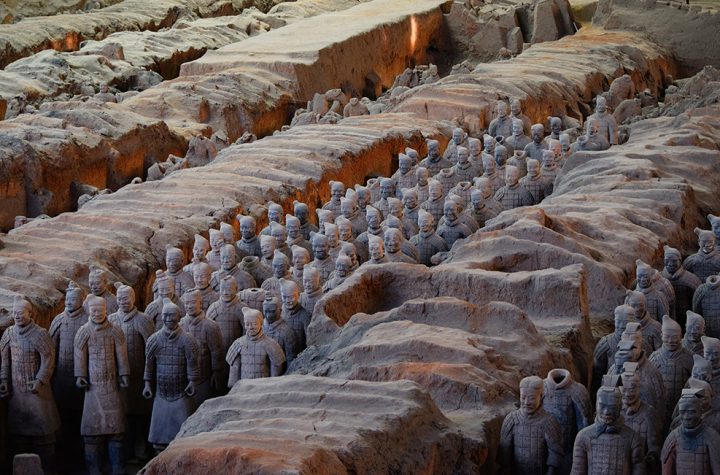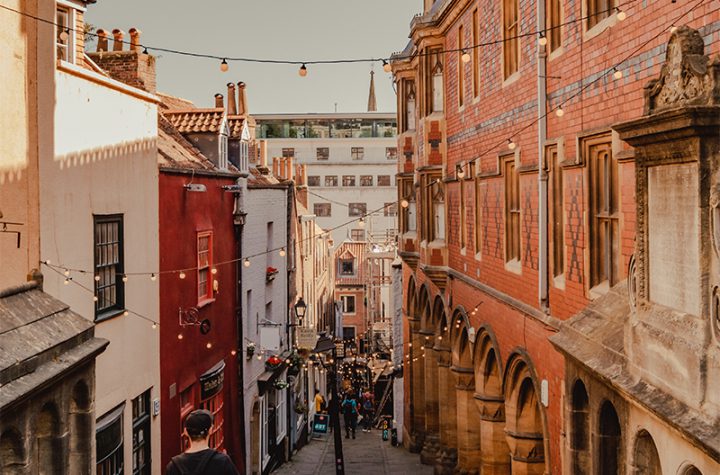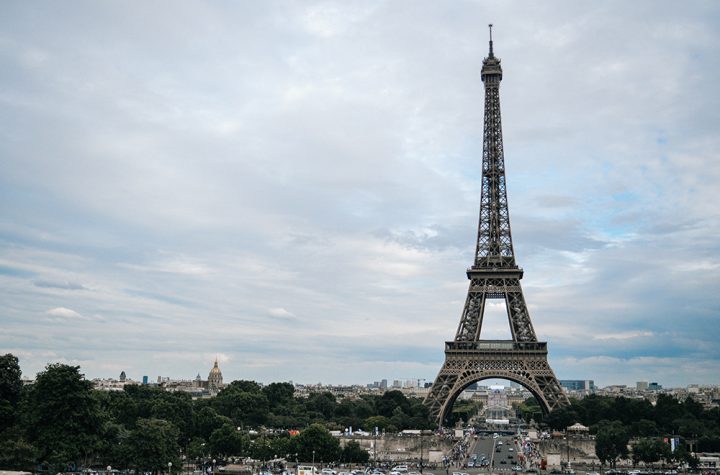
This review contains spoilers for Lovecraft Country episode 3, “Holy Ghost.” To refresh your memory of where we left off, check out our Lovecraft Country episode 2 review.
Honestly, since I’ve been back I’ve felt like a ghost. Like something’s missing, Leti tells Atticus in the third episode of Lovecraft Country, in a diner conversation that feels more like a confession. And I keep grasping at everything, trying to avoid it. The church, my sister…you. Hell, I thought the world was one way and now I find out it isn’t. And it terrifies me.
This week’s episode of Lovecraft Country, appropriately titled “Holy Ghost,” tackles not only the lingering ghosts of Leti’s past, but the metaphorical and in this case, very literal specter of redlining, a manifestation of systemic racism dating as far back as Roosevelts New Deal, whose effects are inextricably tied with the post-war formation of the American suburbs and whose repercussions continue to haunt Black American homeowners to this day.
Using funds and resources provided to her (presumably) by her estranged late mothers estate, Leti purchases a large abandoned house on the North Side of Chicago in an attempt at pioneering, where Black homeowners purchased homes in predominantly white neighborhoods prior to the Fair Housing Act of 1968 in an appeal for peaceful integration and coexistence. Unfortunately, these efforts were, more often than not, met with a backlash that was anything but peaceful. We learn later that Letis purchase was not facilitated by an inheritance from her mother, but by the machinations of Christina Braithwhite, and that the Winthrop House has its own sordid history when it comes to profiting from Black pain. Before we jump too far ahead though, lets unpack what happened in this weeks episode.
Its been over a month since George’s burial in the wake of the events of what took place in Ardham. Hippolyta, still mourning the loss of her husband, becomes visibly resentful of her nephew Atticus, whose presence serves as not only a living reminder of Georges absence, but a seed of suspicion that both he and his father Montrose are hiding something from her about the circumstances of her husband’s murder.
While her screen-time this week is relatively small compared to Atticus, Leti, or even Montrose’s, the heartbreaking grace, anger, and sheer emotional weight of Aunjanue Ellis’ performance as a grieving widow is remarkable and makes the prospect of her own future stand-alone episode in the vein of this week’s focus on Leti all the more exciting. The trio have sworn one another to secrecy regarding the truth of what happened in Ardham, in an attempt to spare Hippolyta the pain of having to confront a new reality which they themselves have scarcely even begun to understand. However, judging by what we’ve seen of Hippolyta in “Holy Ghost,” this deception is destined to be undone soon enough.
Atticus has distanced himself from Leti in the weeks since Georges death, throwing himself into the role of a surrogate caregiver and support structure for his cousin and aunt out of both grief and guilt. In that time, Leti has purchased a home, the aforementioned Winthrop House, in order to provide a place of refuge for Black Chicagoans who need it most. Her best-laid plans and intentions are soon undone, however, as she and her would-be boarders are forced to confront not only the intimidations of her white neighbors, but the malevolent presence of a force that haunts the house.
There’s no shortage of superlatives one could use to describe Jurnee Smollett’s performance in this episode. Last week I speculated that the show would most likely hit its stride the further it moved out of the immediate orbit of Atticus’ personal story and instead focused on the supporting characters around him. The quality of Holy Ghost is a testament to that. From smashing in the headlights of her racist neighbors’ wailing automobiles with a baseball bat like a scene straight out of Beyonce’s Lemonade, to tearfully screaming condemnations in a last-ditch attempt at exorcising a demonic spirit, Smollett’s range in this episode is remarkable.
In many respects, “Holy Ghost” feels like both a course correction from last week’s “Whitey’s on the Moon” and a refinement of the strengths of the series’ premiere. There’s suspense and gratification, jubilation and heartache, horror and catharsis. The scene of Leti’s housewarming party is a perfect reprise of the all-too-rare depiction of Black communal joy we were treated to in Lovecraft Country’s first episode, and this week’s twist on the series’ ongoing narrative, framing the episode as a haunted house story with an ominous intertitle card before counting down the days to its fated gory finale, is such a welcome change of pace that one can only hope the series will continue to experiment and iterate on its formula as the season progresses.
Speaking of gore, the practical effects in this episode are superb. From drooling mutilated giblets and ghastly amputations, the makeup and costume designs for the house’s cast of apparitions echo some of the most hellacious forms of eugenic experimentation ever perpetrated throughout modern history. Their appearances especially shine during the episodes climax where a trio of neighborhood vandals are fiendishly picked off one-by-one by the houses most horrifying poltergeists.
For such an ostensibly stand-alone episode, Holy Ghost deftly weaves several narrative threads across its runtime that are just begging to be elaborated on in future episodes. From Hippolytas fateful discovery of a mysterious golden orrery in a secluded room of the Winthrop House, to Rubys internalized racism and insecurity in the face of systemic prejudice, to an offhand conversation concerning a certain Southern preacher gaining support for civil rights, “Holy Ghost” offers plenty of tantalizing directions the series could explore both now and in the future.
All of this is to say nothing of one of the episode’s most interesting yet understated creative choices: its depiction of religion and faith. Although in past episodes we’ve seen Leti’s estranged relationship with faith, “Holy Ghost” foregrounds that crisis of belief immediately in a poignant opening scene with her sitting in the church pews with a group of parishioners immersed in the rapture of song.
The sound falls away, and we hear a voice speaking to Leti, presumably her late mother’s. Hey Leti, what did you do to make a mark on this world? the voice rings out throughout the scene. What mountains did you climb? Which angels gave you their wings? Which skies have you flown? When you reached the heavens, who was there to catch you when you fell? It’s a deeply affecting scene, made even more so when juxtaposed with Leti’s later confrontation with the malicious spirits that haunt her home, one that unearths the complicated tangle of trauma and love at the heart of Leti’s relationship to both her mother and, by extension, the church in which she grew up.
Throughout her personal arc during Holy Ghost, Leti comes into a fuller sense of certainty with herself, confronting the ghosts of her past and her own selfish indiscretions to become a better, stronger person. “I can’t live in fear, I won’t,” Leti tells Atticus during that same fateful conversation at the diner, devising a means to exorcise the evil from her house. “I got to face this new world head-on and stake my claim in it.”





More Stories
All the reaction from the Premier League, plus FA Cup first-round goals.
Company co-founder Josh Giegel and Sara Lucian are the first people in history to ride in a Hyperloop.